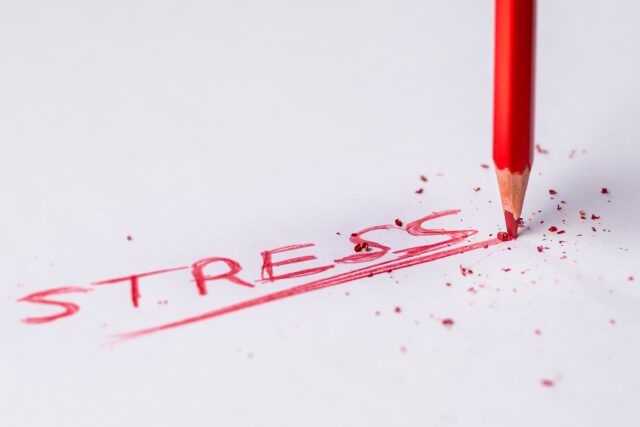

Highway to Health: Stress Management
Stress pushes us into our “fight or flight” mode, meaning when we are stressed our bodies adapt to the stressor by increasing our heart rate, slowing down our metabolism and GI tract and releasing adrenaline hormones. This type of reaction has been embedded into human DNA since the beginning of time.

What does “fight or flight” mean to us in the 21st century? We are not running from wild boars through the forest or dodging a migrating flock of velociraptors through the plains, so we don’t need our heart rate to increase or a bolus of adrenaline while we’re putting together our monthly reports.
Yet our reaction to stressors can cause this response, resulting in strain on our physical body systems.
Stress has been linked to a number of health conditions, including sleeping problems, high blood pressure, allergies, asthma, ulcers, digestive problems, and migraine headaches.
Here’s the good news—life doesn’t have to be as stressful for you. While having a high level of stress leads to negative health and life consequences, managing and reducing stress brings some important health benefits.
Successful stress management will help your immune system function. When your immune system is working at 100%, it makes it easier to get rid of that pesky cold, or those occasional aches and pains.
Managing your stress can also give you more energy. Rather than wanting to go home and crawl into bed on Friday evening or dreading the Monday just around the corner, you’ll have the energy to spend more time with your friends and family. Spending this quality time doing the things you want will help you to relax and prepare you for the upcoming workweek.
Need help finding ways to relieve your stress? Give these tactics a try:
Reframe Problems. Try to view stressful situations from a more positive perspective.
Don’t try to control the uncontrollable. Many things in life are beyond our control— particularly the behavior of other people.
Look for the upside. When facing major challenges, try to look at them as opportunities for personal growth.
Share your feelings. Expressing what you’re going through can be very cleansing, even if there’s nothing you can do to alter the stressful situation.
Learn to forgive. Accept the fact that we live in an imperfect world and that people make mistakes. Let go of anger and resentments. Free yourself from negative energy by forgiving and moving on.
Positive self-talk. How you think can have a profound effect on your emotional and physical well-being.
Time/task management. Create a balanced schedule, don’t over-commit, make a checklist, delegate, leave early and compromise.
Journal. When stress is getting you down, take a moment to reflect on all the things you appreciate in your life, including your own positive qualities and gifts.
Be socially discriminatory. Avoid those who stress you out, take control of your own environment, avoid hot topic buttons with certain people and limit time with those who cause you stress.
Find a hobby. Hobbies can occupy our minds in times of stress and give us an opportunity to relax our brains.
Adopt a healthy lifestyle. The best medicine for depression and stress is exercise and a healthy diet. Exercise releases your happy hormone, which will save the stress-induced adrenaline for when you really need it (remember, the boars).
Meditate. Meditation can bring immediate stress relief and is invaluable when it comes to stress management.
